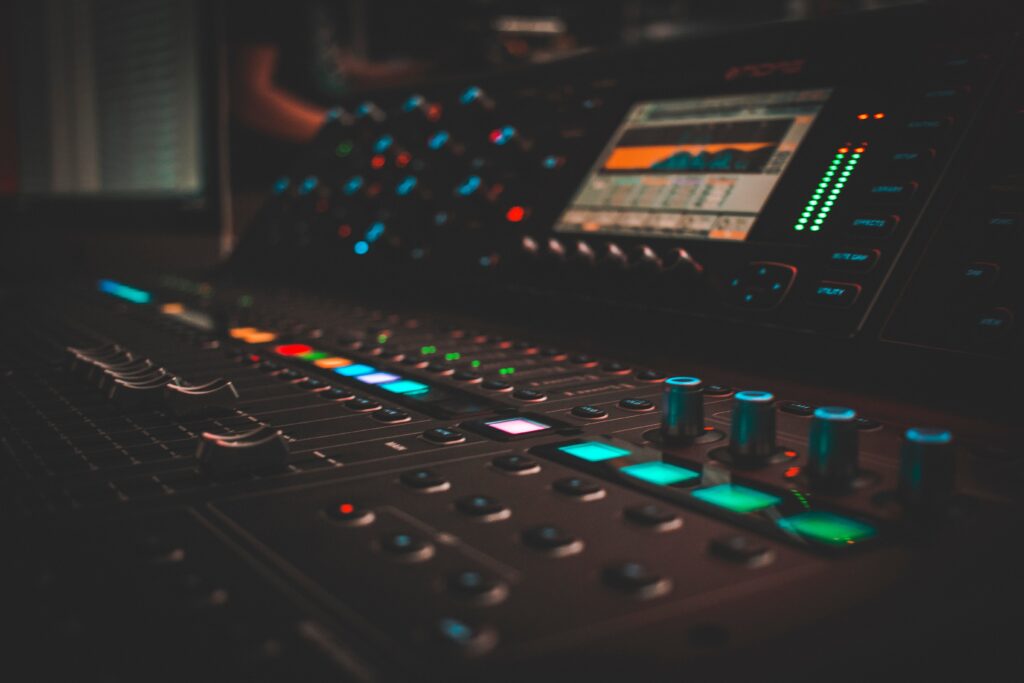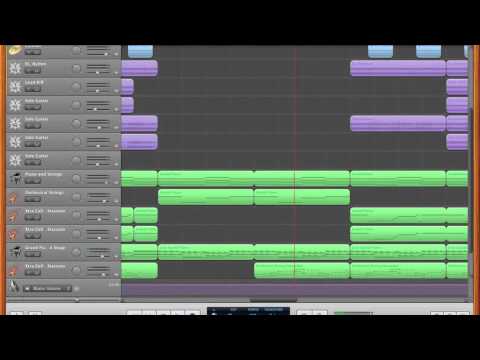Hi there! This is Aleah, with another guest post. Today, we are delving into some neat music tech tools for teachers, performers, and hobbyists. Some of them are free, some of them are not. But all of these on this list are really helpful…and many quite fun!

The Music Tech Tool Everyone Knows About: GarageBand
Why not start with GarageBand? The app we probably have all heard of. The only downfall to this one is that it is only available on IOS.
I recently re-downloaded GarageBand on a new Ipad I had just gotten. GarageBand has come a long way in the past ten years or so.
In case you don’t already know, Garageband is a digital audio workstation, or “DAW”. A digital audio workstation is an app or software used for recording, editing and producing audio files. While the original iteration of Garageband was more geared towards rock and electronic songs, I have found that the most recent sound samples of orchestral instruments to be quite good, especially for a free program.
In addition to the ability to layer electronic instruments, the ‘09 update of the program added in lessons for piano and guitar. This feature could be really great for private lessons students who are interested in popular music. It includes lessons for songs like Fall Out Boy’s “Sugar We’re Goin’ Down” and “Apologize” (OneRepublic). Garageband is a neat tool for making quick song sketches, for both students and teachers. Teacher- try making backing tracks for your students using the drum and bass loops!
This is a little tidbit of what you can do with Garageband. Here is a quasi-orchestral piece by Joe Vallee called “Guitar Symphony.”
While Garageband.com has been long closed, you can still find the app on the Apple store.
Recording Made Simple: Audacity
Audacity is yet another ‘Oldie but a goodie’. It is an open-source DAW and recording device. It’s best known for its editing. This program works so well that even voiceover artists use it to edit peeks and compress their recordings. Audacity is also free. You can use it on either MAC or PC products.
You can find the program here.
The Top-Notch Spectrogram: Izotope RX8
Next up on the list is Izotope RX8. While it can get a little pricey, this is still a really cool tool. RX8 is a program that can actually repair audio. Like Audacity, a lot of voice-over artists use it, but I find that the compression is absolutely lovely on recorded strings. It is technically a spectrogram. Spectrograms show much more detail in the audio than your typical DAW does. That’s what makes this one so neat.
I don’t have any stake in Izotope affiliates here. I just personally use it, so that I can see my music more clearly than I can in my DAW, Reason.
You check out the different levels of software, as well as find a free trial here.
For Learning Music Theory: Teoria
Enough about recording for now. Let’s talk Teoria.
Teoria is a website that helps you learn music theory. You can find free ear training exercises, musical analyses, and tutorials on this site. And, every day, they post interesting information about this day in music history. I wish I had known about this one during undergrad! This tool is indispensable for classical cats. Here is a Red Desert Violin tutorial that gives you the highlights of this awesome website.
Just for Fun: PatternSketch
PatternSketch is a free online drum machine and sequencer. You can use this music tech tool to make tracks, and then save them, share them, or export them as an audio file. This website would be excellent for lessons for a beginner’s music technology class. If you are bored with your metronome, you can create a wicked beat on PatternSketch and use it instead! Even though I’m an adult with a professional-grade DAW, I thoroughly enjoy noodling on this page.
OMR: ScanScore
ScanScore is a piece of optical music recognition software. While it isn’t free, this one is a major time-saver. ScanScore allows you to scan/ digitize sheet music from a scanner, phone, or a PDF. You can purchase it, or get a free trial, here. Gone are the days of transcribing songs that have already been written, note by note.
For Composing on the Go: Notion
Notion is a paid notation app by Presonus that you can find on IOS. It runs just under $20. Once again, I’m not affiliated with this company. I personally use Notion when I want to compose on the go. It is a mobile notation app that works really well if you’re a composer with an Ipad. There is also an option to put the app inside Dropbox; so, if you forget your Ipad at home, you can still compose from any computer.
For the Kids: Chrome Music Lab
This tech website is for you music educators. Although I do have to admit, I’ve had a little fun on the site myself! Chrome Music Lab has a plethora of teaching tools, including a visual song maker, spectrogram, and Kandinsky experiment.
BlankSheetMusic
Most music educators probably already know about this one, but I’m going to go ahead and give you the link anyway. BlankSheetMusic is a quite basic website. It allows you to blank staves, as well as guitar and bass tab sheets.
Other Resource for Making Electronic Music
AudioSauna
AudioSauna is a free virtual synthesizer. This web-browser based production page has more than you might expect, including a sampler, vintage effects, and the ability to layer. Free tools like this make composing more accessible to the new generation of musicians, especially composers. I’m all for it!
A Music Tech Tool for Collaboration: Loop Labs
In some ways, Loop Labs is a music tech tool similar to the other web-based DAWs I’ve already mentioned. That being said, there is one main difference here: Loops Labs is a collaborative cloud-based music studio. There are more than 25,000 free sounds on the site.
Music Tech Tools: Conclusion
I can’t help but be amazed at how far music technology has come since I was in music school. This list just barely scratches the surface of what music software is out there. So, happy exploring!
About the Author
Aleah Fitzwater is a full-time music writer, classical flutist, and artist. She has been published in various coves of the internet. She also creates visual art and flute arrangements https://aleahfitzwater.com/

